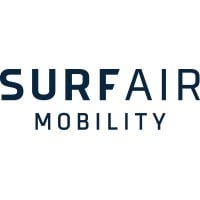
Surf Air Mobility
Transforming air mobility through software and electrification.



Transforming air mobility through software and electrification.

Lufthansa is one of the world’s leading airlines, connecting passengers to over 200 destinations across 74 countries from our hubs in Frankfurt and Munich. As an industry pioneer, we are committed to shaping the future of sustainable aviation, investing in next-generation aircraft, cutting-edge technology, and digital solutions. Our goal is to drive excellence: not just in the sky, but across every touchpoint of the travel experience. With Lufthansa Allegris, our new long-haul experience, we are setting a new standard in premium travel, introducing a completely redesigned First, Business, Premium Economy, and Economy Class for ultimate comfort and choice. We continue to enhance the travel experience with state-of-the-art lounges, award-winning service, and onboard broadband Wi-Fi (FlyNet) across our entire long-haul fleet. Follow us for updates on how we're shaping the future of aviation. For more information, reservations or customer service, visit lufthansa.com or follow us on Facebook, X and Instagram. We look forward to welcoming you onboard. This LinkedIn page is maintained by Deutsche Lufthansa AG. We will not answer specific Customer Service queries here on LinkedIn. If you have an immediate concern or need to contact us please visit http://www.lufthansa.com/us/en/imprint
Security & Compliance Standards Overview












No incidents recorded for Surf Air Mobility in 2025.
No incidents recorded for Lufthansa in 2025.
Surf Air Mobility cyber incidents detection timeline including parent company and subsidiaries
Lufthansa cyber incidents detection timeline including parent company and subsidiaries
Last 3 Security & Risk Events by Company
Angular is a development platform for building mobile and desktop web applications using TypeScript/JavaScript and other languages. Prior to versions 19.2.16, 20.3.14, and 21.0.1, there is a XSRF token leakage via protocol-relative URLs in angular HTTP clients. The vulnerability is a Credential Leak by App Logic that leads to the unauthorized disclosure of the Cross-Site Request Forgery (XSRF) token to an attacker-controlled domain. Angular's HttpClient has a built-in XSRF protection mechanism that works by checking if a request URL starts with a protocol (http:// or https://) to determine if it is cross-origin. If the URL starts with protocol-relative URL (//), it is incorrectly treated as a same-origin request, and the XSRF token is automatically added to the X-XSRF-TOKEN header. This issue has been patched in versions 19.2.16, 20.3.14, and 21.0.1. A workaround for this issue involves avoiding using protocol-relative URLs (URLs starting with //) in HttpClient requests. All backend communication URLs should be hardcoded as relative paths (starting with a single /) or fully qualified, trusted absolute URLs.
Forge (also called `node-forge`) is a native implementation of Transport Layer Security in JavaScript. An Uncontrolled Recursion vulnerability in node-forge versions 1.3.1 and below enables remote, unauthenticated attackers to craft deep ASN.1 structures that trigger unbounded recursive parsing. This leads to a Denial-of-Service (DoS) via stack exhaustion when parsing untrusted DER inputs. This issue has been patched in version 1.3.2.
Forge (also called `node-forge`) is a native implementation of Transport Layer Security in JavaScript. An Integer Overflow vulnerability in node-forge versions 1.3.1 and below enables remote, unauthenticated attackers to craft ASN.1 structures containing OIDs with oversized arcs. These arcs may be decoded as smaller, trusted OIDs due to 32-bit bitwise truncation, enabling the bypass of downstream OID-based security decisions. This issue has been patched in version 1.3.2.
Suricata is a network IDS, IPS and NSM engine developed by the OISF (Open Information Security Foundation) and the Suricata community. Prior to versions 7.0.13 and 8.0.2, working with large buffers in Lua scripts can lead to a stack overflow. Users of Lua rules and output scripts may be affected when working with large buffers. This includes a rule passing a large buffer to a Lua script. This issue has been patched in versions 7.0.13 and 8.0.2. A workaround for this issue involves disabling Lua rules and output scripts, or making sure limits, such as stream.depth.reassembly and HTTP response body limits (response-body-limit), are set to less than half the stack size.
Suricata is a network IDS, IPS and NSM engine developed by the OISF (Open Information Security Foundation) and the Suricata community. In versions from 8.0.0 to before 8.0.2, a NULL dereference can occur when the entropy keyword is used in conjunction with base64_data. This issue has been patched in version 8.0.2. A workaround involves disabling rules that use entropy in conjunction with base64_data.